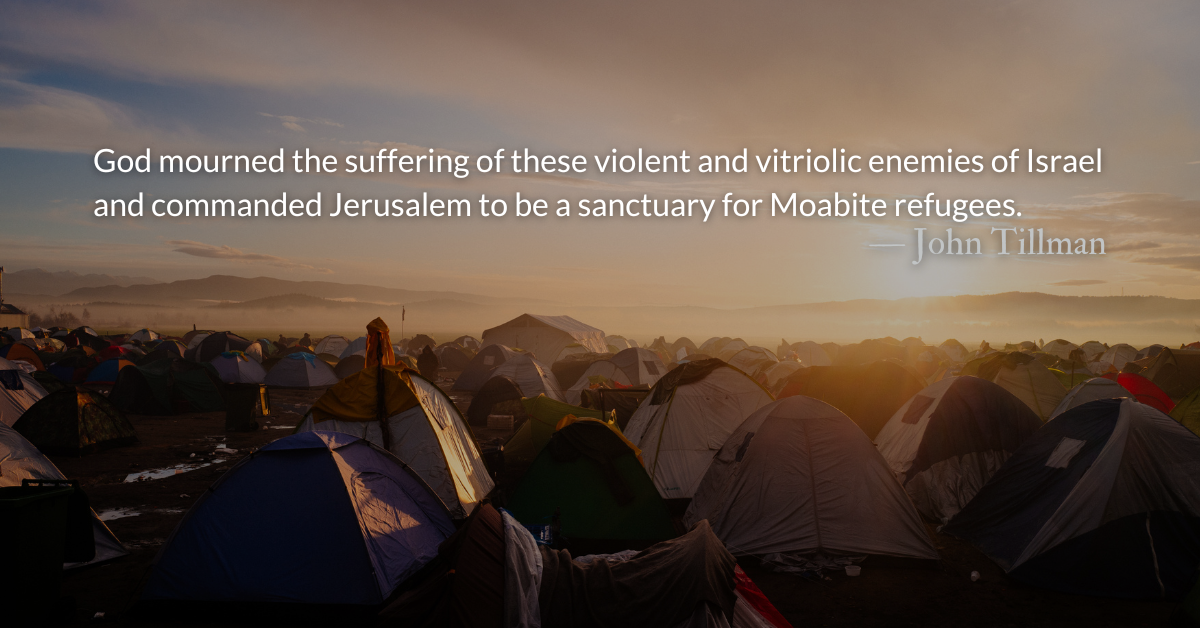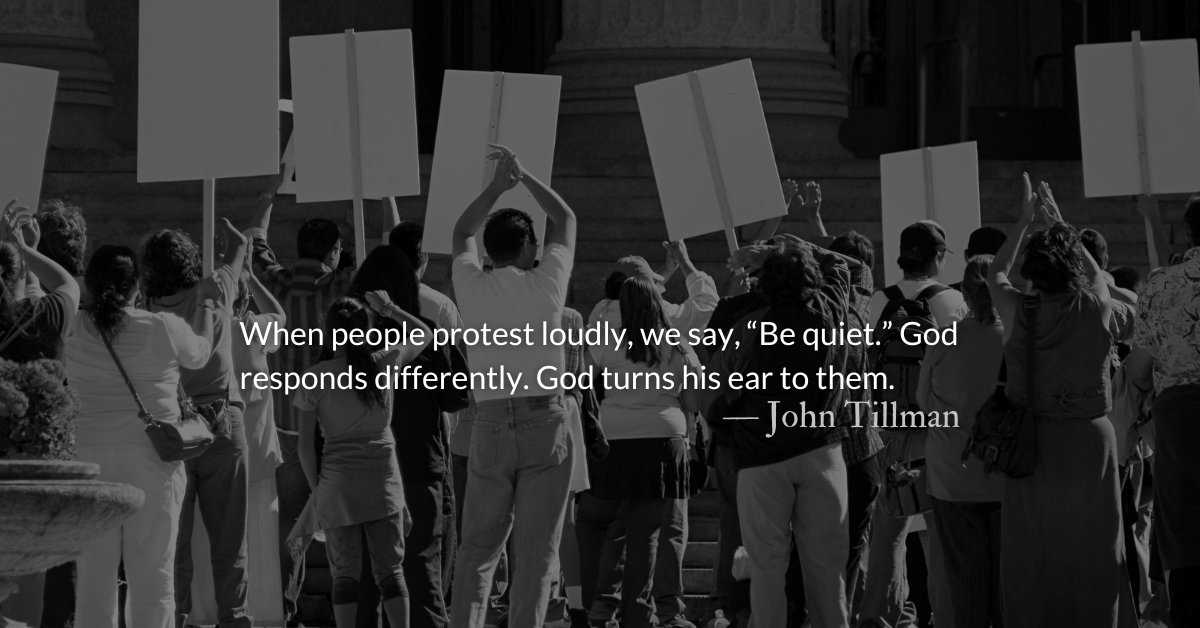Scripture Focus: Isaiah 16:6-7, 11
6 We have heard of Moab’s pride—
how great is her arrogance!—
of her conceit, her pride and her insolence;
but her boasts are empty.
7 Therefore the Moabites wail,
they wail together for Moab.
Lament and grieve
for the raisin cakes of Kir Hareseth.
11 My heart laments for Moab like a harp,
my inmost being for Kir Hareseth.
Reflection: Grief for the Guilty
By Erin Newton
God created the world with great potential. All things were declared “good,” but people were called to cultivate the land and bring about its fullness. Moab was once a picturesque land of green vineyards, refreshing waters, and bountiful harvests.
It all came to an end. Vines were trampled. Water dried up. The destruction of cities and devastation of their resources was likely due to the invasion of the Assyrians. When Isaiah described the wailing of the people, he reflected on the loss of these signs of blessed abundance.
It is a tragic scene that began in Isaiah 15:3, “In the streets they wear sackcloth; on the roofs and in the public squares they all wail, prostrate with weeping.” The men cried out. Fugitives wept. Their lamentation echoed to the borders.
Somewhere amid this tragedy, there was a glimpse of hope in the house of David. But something happened, the verse turns to a reminder of the pride and arrogance of Moab. It reads as if help had been offered through the God of Judah but hastily rejected. Despite their turmoil, Moab would not turn to the God who saves. “When Moab appears at her high place, she only wears herself out; when she goes to her shrine to pray, it is to no avail” (v. 12).
We might read this and perform a simple mathematical equation: A + B = C. They could have found hope in Judah but rejected God, so their destruction is just. While we proclaim God to be perfectly just, does our compassion and mercy end there?
What struck me about this chapter was the pivot in verse 11—the wailing now comes from the speaker. (Who is the me? Commentaries vary between saying it is the Lord who grieves, and others say it is the prophet. It’s safe to say that either voice conveys the godly characteristic of divine mercy.)
Mercy and justice can burn equally in one’s heart. You can look at tragedies and see ways in which people suffer from self-inflicted wounds through arrogance, pride, self-reliance, and the rejection of God. You can look and still your heart rends in grief. The deep bowels of your soul can cry out in lament. Why? Because we see the goodness God created in each person, we see the potential for blessed abundance, and yet through rejection of God’s gift of hope—all is destroyed.
Divine Hours Prayer: The Greeting
In you, O Lord, have I taken refuge; let me never be put to shame; deliver me in your righteousness. — Psalm 31.1
– From The Divine Hours: Prayers for Summertime by Phyllis Tickle.
Today’s Readings
Isaiah 16 (Listen 2:32)
Acts 5 (Listen 6:49)
Read more about No Such Thing as God Forsaken
Like Isaiah’s audience, we may be tempted to shout “amens” when our “enemies” are condemned.
Read more about Prayer for Enemies
Some may think it strange to pray for one who seems irredeemable; one who rejects any criticism and leans on pride. But this is just the kind of person David prays for.






